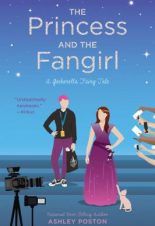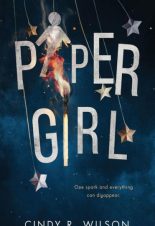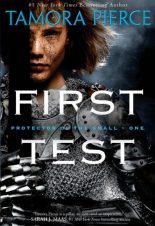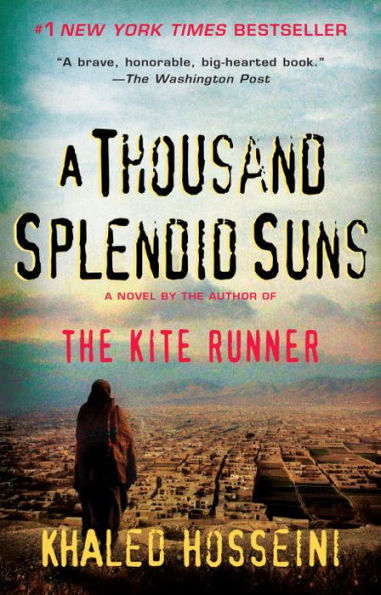
Buy This Book Buy This Series
“Seasons had come and gone. . . But Mariam had hardly noticed, hardly cared. . . the future didn’t matter. And the past held only this wisdom: that love was a damaging mistake, and its accomplice, hope a treacherous illusion. –A Thousand Splendid Suns
A Thousand Splendid Suns
by Khaled Hosseini
AR Test, Teaches About Culture
18+
Score
5.4
432
A Thousand Splendid Suns is set against the volatile events of Afghanistan’s last thirty years—from the Soviet invasion to the reign of the Taliban to post-Taliban rebuilding. It puts the violence, fear, hope, and faith of the country in intimate, human terms. It is a tale of two generations brought jarringly together by the tragic sweep of war. In war, personal lives—the struggle to survive, raise a family, and find happiness—are inextricable from the history playing out around them.
Mariam and her mother live as outcasts. With little contact with the outside world, Mariam dreams of a time when her father will accept her. When Mariam’s mother dies, Mariam has no choice but to show up at her father’s house. Her father quickly arranges for Mariam to marry Rasheed. At first, Mariam is hopeful that living in a new city with a new husband will be the beginning of something good. But after a string of miscarriages, Rasheed becomes violent and forbids Mariam from seeking friendship.
Meanwhile, Laila grew up with parents that believe everyone deserves an education, including girls. While Laila’s childhood is far from perfect, she is surrounded by loving people. Then, just when her family plans to leave their war-torn city, Laila’s parents are killed. With no family or friends left, Laila isn’t sure where to turn. When Rasheed offers marriage, Laila reluctantly agrees to become his second wife. However, she wasn’t prepared for his first wife’s hate or Rasheed’s violence.
A Thousand Splendid Suns has worked its way onto many schools’ required reading lists because the story helps readers understand Afghan history. More importantly, it is a story of family, friendship, and hope. Mariam and Laila’s friendship gives them strength to live in a brutal environment, where their husband is cruel and abusive. Through their plight, readers will begin to understand the role women play in Afghanistan and how the Taliban changed their world overnight.
Readers will be deeply moved by the story’s events. However, the brutality of war, the massacre of innocent people, and the harsh physical abuse of both Mariam and Laila is graphic and disturbing. Hosseini paints a realistic picture of living in a war-torn country, and the images of death will remain with readers for a long time after they close the cover of the book. Even though A Thousand Splendid Suns has a positive message, sensitive readers will find the descriptions of Rasheed’s abusive behavior and the constant death upsetting.
Before you read A Thousand Splendid Suns, grab a box of tissues because the story will bring you to tears. Because of Laila’s friendship, Mariam makes a decision that will forever alter both of their lives. Through Mariam’s experiences, readers will come to understand how powerless women were under the Taliban’s rule, but they will also see how friendship and kindness have the power to change one’s life.
Sexual Content
- After Mariam’s mother got pregnant, the baby’s father told his wives that her mother had “forced” herself on him.
- Mariam is forced to marry a much older man. Before the marriage, Mariam thinks about her mother’s words. “It was the thought of these intimacies in particular, which she [Mariam] imagined as painful acts of perversity, that filled her with dread and made her break out in a sweat.”
- One night, Mariam’s husband comes into her room. “His hand was on her right breast now, squeezing it hard through the blouse. . . He rolled on top of her, wriggled and shifted, and she let out a whimper. . .The pain was sudden and astonishing. . . When it was done, he rolled off her, panting.”
- Mariam finds pornography in her husband’s room. The women in the pictures, “their legs were apart, and Mariam had a full view of the dark place between.”
- Mariam’s husband desires intimacy. “His appetite, on the other hand, was fierce, sometimes boarding on violent. The way he pinned her down, his hand squeezes at her breast, how furiously his hips worked.”
- Laila’s feelings for her best friend, Tariq, begin to change. She wonders “what would it be like to kiss him, to feel the fuzzy hair about his lips tickling her own lips?” Later, they have sex. “Laila thought of Tariq’s hands, squeezing her breast, sliding down the small of her back, as the two of them kissed and kissed.”
- Laila hears a story about three sisters who were raped and then “their throats slashed.”
- After Laila’s parents die, an older man asks Laila to marry him. He implies that if she says no, she may have to work in a brothel. Laila agrees to marry him because she is pregnant.
- After Laila and the man are married, he has sex with her. “Laila had a full view of his sagging breast, his protruding belly button. . . she felt his eyes crawling all over her.” They have sex several times, but the action is not described in detail.
Violence
- The book often describes the violence of war. For example, someone says that the Mujahideen forces boys to fight. “And when soldiers from a rival militia capture these boys, they torture them. I heard they electrocute them. . . then they crush their balls with pliers. They make the boys lead them to their homes. Then they break in, kill their fathers, rape their sisters and mothers.”
- After Mariam goes into town, she comes back and sees “the straight-backed chair, overturned. The rope dropping from a high branch. Nana dangling at the end of it.”
- After Mariam has a miscarriage, her husband becomes different. It wasn’t easy tolerating him talking this way to her, to bear his scorn, his ridicule, his insults. . . [Mariam] lived in fear of his shifting moods, his volatile temperament, his insistence on steering even mundane exchanges down a confrontational path that, on occasion, he would resolve with punches, slaps, kicks. . .”
- Russians took over Afghanistan and people talked about “eyes gouged and genitals electrocuted in Pol-e-Charkhi Prison. Mariam would hear of the slaughter that had taken place at the Presidential Palace.” The president was killed after he watched the “massacre of his family.”
- Mariam’s husband was angry because of her cooking. “His powerful hands clasped her jaw. He shoved two fingers into her mouth and pried it open, then forced the cold, hard pebbles into it. Mariam struggled against him, mumbling, but he kept pushing the pebbles in, his upper lip curled in a sneer . . . Then he was gone, leaving Mariam to spit out pebbles, blood, and the fragments of two broken molars.”
- A teacher would slap students. “Palm, then back of the hand, back and forth, like a painter working a brush.”
- A boy shoots a water gun, spraying a girl with urine.
- After a girl is bullied, her friend fights the bully. “Then it was all dust and fists and kicks and yelps.”
- A rocket hits one of Laila’s friend’s houses. “Giti’s mother had run up and down the street where Giti was killed, collecting pieces of her daughter’s flesh in her apron, screeching hysterically. Giti’s decomposing right foot, still in in its nylon sock and purple sneaker, would be found on a rooftop two weeks later.”
- A rocket hits Laila’s house. “Something hot and powerful slammed into her from behind. It knocked her out of her sandals. Lifted her up. And now she was flying, twisting and rotating in the air. . . Then Laila struck the wall. Crashed to the ground.” Laila sees her dead parents.
- Laila hears a story about soldiers “raping Pashtun girls, shelling Pashtun neighborhoods, and killing indiscriminately. Every day, bodies were found tied to trees, sometimes burned beyond recognition. Often, they’d been shot in the head, had their eyes gouged out, their tongues cut out.”
- Rasheed, Laila’s husband, hits both of his wives often. “One moment [Laila] was talking and the next she was on all fours, wide-eyed and red-faced, trying to draw a breath. . .” She drops the baby she was carrying. “Then she was being dragged by her hair.” Her husband locks her in a room and then goes to beat his other wife. “To Laila, the sounds she heard were those of a methodical, familiar proceeding. . . there was no cussing, no screaming, no pleading. . . only the systematic business of beating and being beaten, the thump, thump of something solid repeatedly striking flesh.”
- When the Taliban take over Afghanistan, they kill the Afghanistan leader. The Taliban “had tortured him for hours, then tied his legs to a truck and dragged his lifeless body through the streets.”
- After Rasheed hits Laila, she “punched him . . . The impact actually made him stagger two steps backward. . . He went on kicking, kicking Mariam now, spittle flying from his mouth. . .” At one point Rasheed put the barrel of a gun in Laila’s mouth.
- Rasheed gets upset at Laila and begins “pummeling her, her head, her belly with fists, tearing at her hair, throwing her to the wall.” Mariam tries to help Laila but Rasheed hits her too.
- After an old friend comes to see Laila, Rasheed gets angry. “Without saying a word, he swung the belt at Laila. . . Laila touched her fingers to her temple, looked at the blood, looked at Rasheed, with astonishment. Rasheed swung the belt again.” Rasheed begins to strangle Laila. “Laila’s face was turning blue now, and her eyes had rolled back.”
- In order to save Laila, Mariam hits Rasheed with a shovel. “And so Mariam raised the shovel high, raised it as high as she could, arching it so it touched the small of her back. She turned it so the sharp edge was vertical . . . Mariam brought down the shovel. This time, she gave it everything she had.” Rasheed dies from his wounds.
- When an Afghanistan leader is killed, Laila thinks about some of the violence that he caused. “She remembers too well the neighborhoods razed under his watch, the bodies dragged from the rubble, the hands and feet of children discovered on rooftops or the high branches of some tree days after their funeral. . . “
Drugs and Alcohol
- Someone is given morphine after being injured.
- Laila overhears a story about her husband. He was drunk when his son “went into the water unnoticed. They spotted him a while later, floating face down.” The boy died. Someone says, “This is why the Holy Koran forbids sharab. Because it always falls on the sober to pay for the sins of the drunk.”
Language
- Profanity is rarely used. Profanity includes ass, piss, shit, and damn.
- As a child, Mariam’s mother reminds her that she is a bastard because she was born out of wedlock.
- Mariam yells at her half-brother, saying “he had a mouth shaped like a lizard’s ass.”
- Mariam pleads with her father, asking him not to make her marry a stranger. He yells, “Goddamn it, Mariam, don’t do this to me.”
- A child yells at a bully, saying, “Your mother eats cock!” The child does not know what the words mean.
- Someone calls Laila a whore. Later, Laila’s husband also calls her a whore.
Supernatural
- None
Spiritual Content
- The story focuses on characters who are Muslim. They often pray.
- Mariam’s mom said she had a difficult labor. She said, “I didn’t eat or sleep, all I did was push and pray that you would come out.”
- Mullah Faizullah teaches Mariam about the Koran’s words. He tells her, “You can summon them [God’s words] in your time of need, and they won’t fail you. God’s words will never betray you, my girl.” During difficult times, Mariam thinks about verses from the Koran.
- Mariam asks Mullah Faizullah to convince Mariam’s mother to let her go to school. He replies, “God, in His wisdom has given us each weaknesses, and foremost among my many is that I am powerless to refuse you, Mariam.”
- Mariam’s mother tells her, “Of all the daughters I could have had, why did God give me an ungrateful one like you?” Later that day, her mother commits suicide.
- After Mariam’s mother commits suicide, Mullah Faizullah says, “The Koran speaks the truth, my girl. Behind every trial and every sorrow that He makes us shoulder, God has a reason.” Later, he tells Mariam that Allah “will forgive her, for He is all-forgiving, but Allah is saddened by what she did.”
- After Mariam’s father forces her to marry, her father says he will come to visit her. She tells him, “I used to pray that you’d live to be a hundred years old. . . I didn’t know that you were ashamed of me.”
- When Mariam learns that she will have a baby, she thinks about a verse from the Koran. “And Allah is the East and the West, therefore wherever you turn there is Allah’s purpose.”
- When Mariam has a miscarriage, she gets angry, but thinks, “Allah was not spiteful. He was not a petty God. . . Blessed is He in Whose hand is the kingdom, and He Who has power over all things, Who created death and life that He may try out.”
- When the Taliban took over Afghanistan, flyers were passed out with new rules including “all citizens must pray five times a day. . . If you are not Muslim, do not worship where you can be seen by Muslims. If you do, you will be beaten and imprisoned. If you are caught trying to convert a Muslim to your faith, you will be executed.”
- A man tells Mariam, “God has made us differently, you women and us men. Our brains are different. You are not able to think like we can.”
“Seasons had come and gone. . . But Mariam had hardly noticed, hardly cared. . . the future didn’t matter. And the past held only this wisdom: that love was a damaging mistake, and its accomplice, hope a treacherous illusion. –A Thousand Splendid Suns
Latest Reviews

Goodbye Days

Medusa

Simone Biles Vs. Nadia Comaneci: Who Would Win?

A Manatee Calf Grows Up
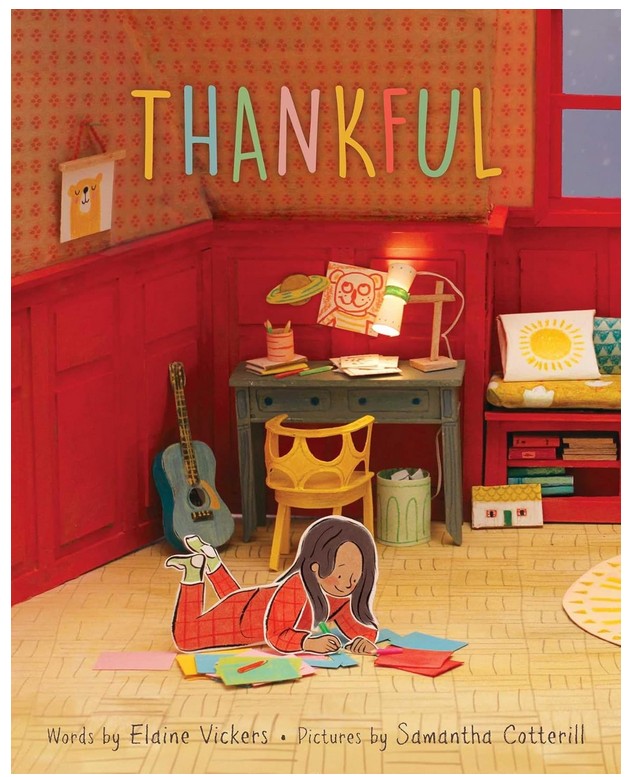
Thankful
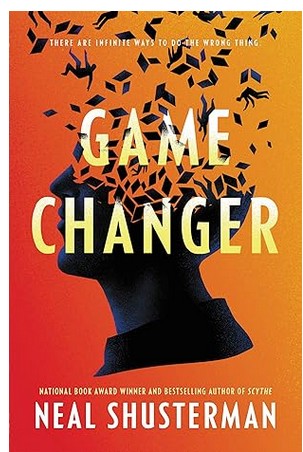
Game Changer

Swimming with Spies
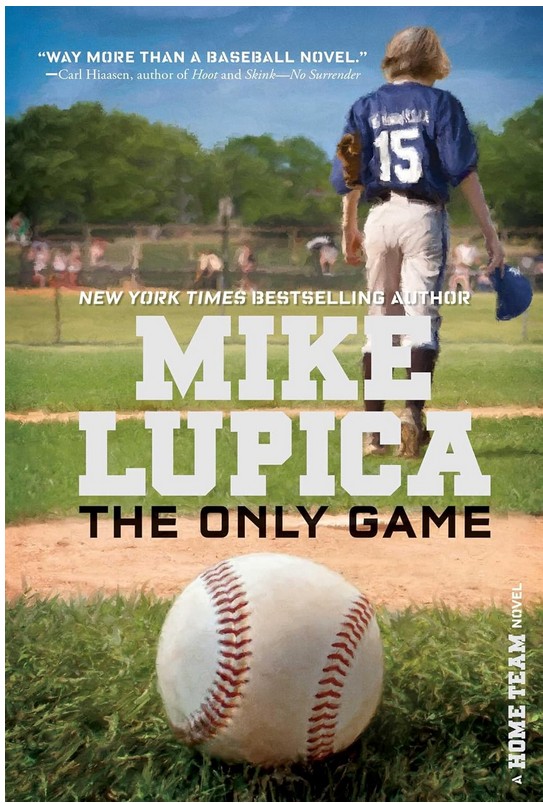
The Only Game
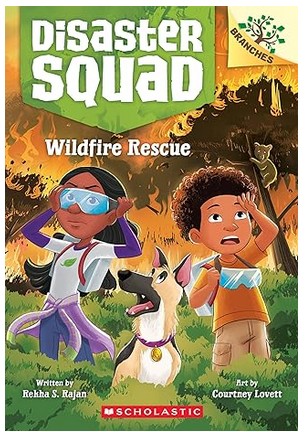
Wildfire Rescue

